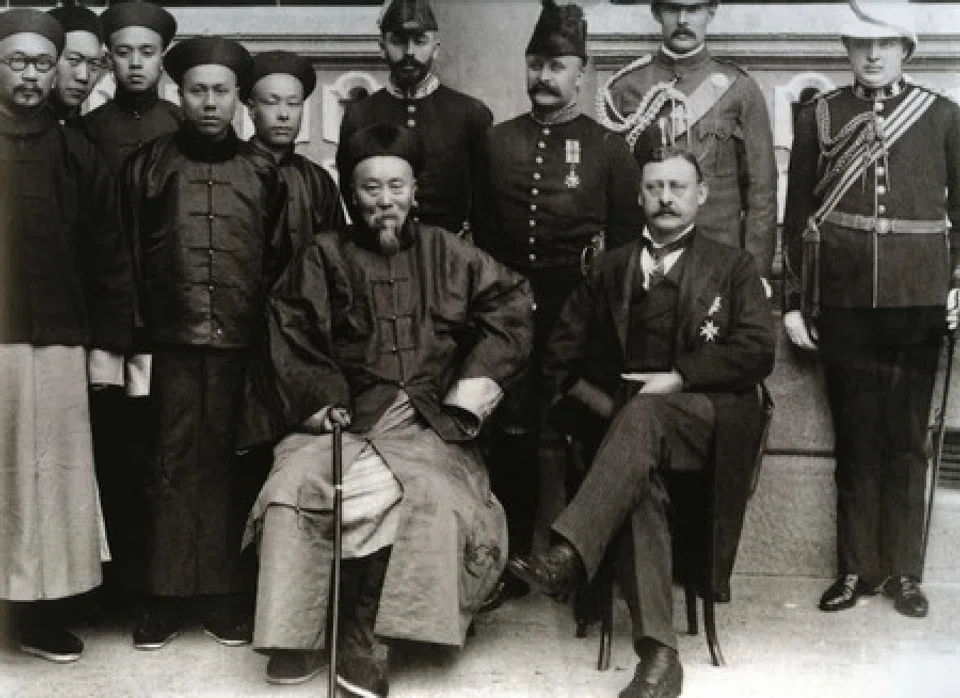China's distrust of private enterprises goes back a long way
Even back in the Qing dynasty, the concept of "state-owned enterprises" was not a foreign one. The Qing government had the habit of maintaining monopolies by running their own enterprises or looking out for profitable industries and private companies, and taking control of them. Hong Kong commentator Chip Tsao notes that even grabbing profits could not prevent the fall of the Qing dynasty.

Here's a question that did not just come up today: Should the China market be led by state-owned enterprises, or private enterprises?
Since ancient times, the Chinese have ranked "scholars, farmers, craftsmen, and merchants" (士农工商), in that order. The Chinese idolise the rich, but are biased against "doing business". Resentment against the rich is easily stoked, leading to the bloodbath of communism. Such tendencies have their roots in Confucianism.
During the Self-Strengthening Movement (1861-1895) - a time of institutional reform during the late Qing dynasty incorporating Western methods - having enterprises led by the Qing court did not work. The leader of the movement, Li Hongzhang, saw that government-owned enterprises, government-supervised enterprises, and government-private joint enterprises would all form monopolies, which would lead to special privileges, without truly unleashing productivity.

The coal mines in Tangshan were the earliest "state-owned enterprises". As there was a national monopoly, the government regulated that no mining by outsiders was allowed within ten li (about five kilometres) of Tangshan. The mined coal had to be transported to other places, leading to sea transport being gradually developed. The Qing government established the China Merchants Steamship Navigation Company, and the official Li Hongzhang ruled that in the next 50 years, only Chinese businesses would be allowed to have shares, with no exceptions made for anyone else.
Only the best survive, and the Chinese government could not match up; the only thing it could do was stoke xenophobia among the people on grounds of imperialist exploitation.
Qing government's monopolies left China vulnerable to the West
Such monopolies of the late Qing dynasty ended up limiting Chinese merchants, without stopping Western merchants with their strong ships and powerful cannons. The Kaiping Mines, one of China's first modern mining companies (also founded by Li Hongzhang), ended up in the hands of British merchants with their superior production technology. Subsequently, even the government-owned Kailuan Mining Administration had to work with British funding.
Although the China Merchants Steamship Navigation Company purchased the fleet owned by American shipping company Russell & Company, by 1874, British company Swire controlled maritime trade from the middle and lower course of the Yangtze River to the sea, all the way to Shantou, with its superior shipping expertise, comprehensive maritime information, and advanced corporate management. Only the best survive, and the Chinese government could not match up; the only thing it could do was stoke xenophobia among the people on grounds of imperialist exploitation.
The crux was that the Qing government was always hesitant about private and government enterprises. And if the authorities did not know what to do, how could there be government-private joint enterprises?
The Qing government insisted on government-owned enterprises because it did not trust capital from the people. For example, it never allowed "civilian capital" anywhere near the military arms industry, and it also kept a tight grip on the railways.
...it only allowed ordinary merchants to run businesses that it felt were unprofitable, while prohibiting them from getting a hand in businesses that made money.

Warlords ruled various parts of the country and had the power to work independently in the late Qing period. Since the time of the Taiping Heavenly Kingdom, landlord classes kept militia, hoarded money, and negotiated deals themselves to establish railway companies, but the Qing government ruled that the heads of railway companies had to be approved by the government.
Refusing to let go
The Qing government kept what was profitable and let go of what was not; it only allowed ordinary merchants to run businesses that it felt were unprofitable, while prohibiting them from getting a hand in businesses that made money. Even companies that were originally privately owned were taken back and run by the government when they were found to be profitable, because the Qing government was unwilling to let the profits go to the people.
For instance, some national telegraph companies used to be privately run, and it was profitable. But the Qing government said that was a key military service - so-called national security - and took it all back.

Mining was profitable too, and was also taken back by the government. Cen Chunxuan, the viceroy of Guangdong and Guangxi, designated the Guangdong Cement Works as government-run, and gave orders that "copycats" were not allowed to get in the way of national profits. Apart from this, the rock mines in Pingle and Fuchuan in Guangxi, and the coal mines in Qujiang in Guangdong, yielded good quality material that made good profits, and were ordered by the Qing government to be given over to be run by the authorities.
After these companies were taken over by the government, the incompetence and wastefulness of the Qing government officials meant that they all descended into mismanagement and huge losses.
The Hubei Textile Bureau founded by prominent Qing dynasty official Zhang Zhidong featured damaged machinery, messy administration, and lazy workers. The authorities sent many inept people as supervisors, only to put them behind their desks with nothing to do.
In government-supervised, privately-run enterprises, or government-private joint enterprises, officials held all the power while the business people had none, and corruption was rife. The government in the late Qing dynasty was on its last legs, but it still squeezed all it could out of private companies. Despite all that, the Qing dynasty could not escape its downfall.
This article was first published in Chinese on CUP media as "吃民間企業的傳統".





![[Photos] Fact versus fiction: The portrayal of WWII anti-Japanese martyrs in Taiwan](https://cassette.sphdigital.com.sg/image/thinkchina/3494f8bd481870f7c65b881fd21a3fd733f573f23232376e39c532a2c7593cbc)